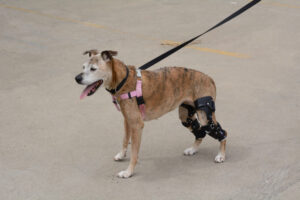Millions of animals — mainly rats and mice — are used every year as surrogates for humans in toxicology testing. Regulatory bodies often require such testing to evaluate the potential toxicity of new products and chemicals.
The search for alternatives to lethal animal toxicology testing in the last few decades has started to make a difference. A recent collaboration by the Johns Hopkins Center for Alternatives to Animal Testing and the UL company has resulted in a significant advancement that may end the use of animals in toxicity testing.
The Chemoinformatics REACHAcross software can predict toxicity with much greater reliability than animal models. Plus, it is faster and less expensive than using animal tests. The results comparing the performance of the artificial intelligence platform to animal models was released at the American Association for the Advancement of Science meeting held recently (see press release).
Parsemus Foundation looks forward to a day when no animal is used in toxicity testing, and supports the work of the Center for Alternatives to Animal Testing.



